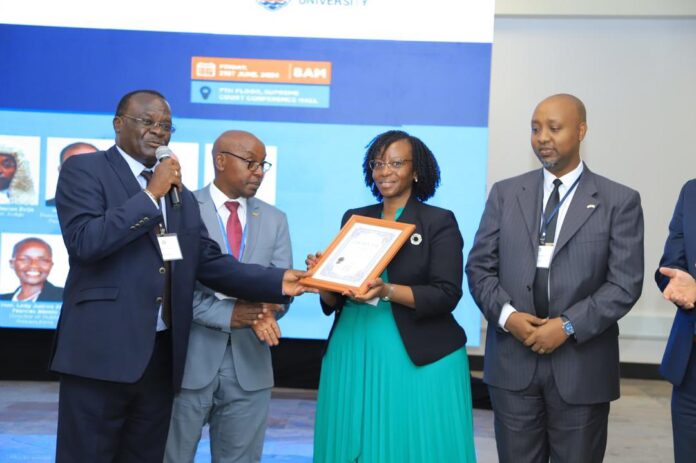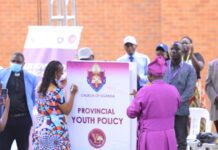The Chief Justice, Alfonse Chigamoy Owiny-Dollo, has highlighted the deep-rooted tradition of plea bargaining in Ugandan culture, aligning with the nation’s values of reconciliation and forgiveness, as the quickest way to reduce case backlog and costs.
He was presiding over the 7th Annual National Plea-Bargaining Conference held today, June 21, 2024, at the Judiciary Headquarters in Kampala.
The conference’s theme, “Plea Bargain—Enabler to People-Centered Justice,” underscores the growing importance of plea bargaining in the Ugandan justice system.
Since 2014, with Pepperdine’s assistance, the Ugandan Judiciary has implemented plea bargaining to streamline caseloads and reduce expenses within the criminal justice system.
Plea bargaining is a process where an accused person pleads guilty in exchange for concessions from the prosecution. These concessions may include reduced charges, dropped charges, or sentencing recommendations subject to court approval.
According to CJ Owinyo Dollo, this achievement exemplifies the efficiency and cost-effectiveness of plea bargaining compared to traditional trials.
He lauded the Mbarara High Court’s exceptional performance and urged all judicial officers to adopt their successful practices.
The Principal Judge, Dr. Flavian Zeija, expressed gratitude to Pepperdine University for its unwavering support.
Dr. Zeija commended the Mbarara High Court Circuit for resolving an impressive 1,320 cases through plea bargaining between January 2022 and June 2024.
“If each judge completes 100 plea bargained cases annually, we can significantly reduce case backlog and costs,” Dr. Zeija emphasized.
A notable attendee is former Principal Judge Dr. Yorokamu Bamwine, along with other sitting and retired judicial officers.















